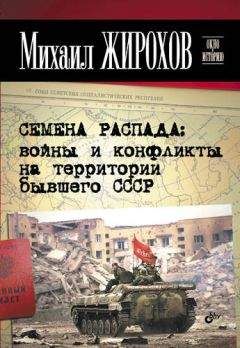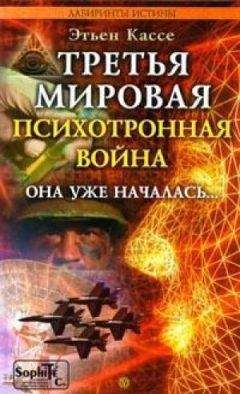Adam Makkai - Словарь американских идиом: 8000 единиц
[say-so]{n.} Approval; permission; word. •/Father got angry because I took his new car out without his say-so./
[say the word]{v. phr.}, {informal} To say or show that you want something or agree to something; show a wish, willingness, or readiness; give a sign; say yes; say so. •/Just say the word and I will lend you the money./ •/I will do anything you want; just say the word./ •/If you get tired of those pictures, say the word./
[say uncle] also [cry uncle] {v. phr.}, {informal} To say that you surrender; admit that you have lost; admit a defeat; give up. •/Bob fought for five minutes, but he had to say uncle./ •/The bully twisted Jerry’s arm and said, "Cry uncle."/ •/The other team was beating us, but we wouldn’t say uncle./ Compare: GIVE IN.
[scale] See: TO SCALE.
[scale down]{v.} To make smaller or less; decrease. •/John scaled down each boy’s share of food after a bear robbed the camp./ •/Tom built a scaled down model of the plane./ Compare: CUT DOWN.
[scandal sheet]{n.} A newspaper that prints much shocking news and scandal. •/Bob wanted to find out who won the election, but he could find only a scandal sheet./ •/The scandal sheet carried big headlines about the murder./
[scarcely any] See: HARDLY ANY.
[scarcely ever] See: HARDLY EVER.
[scaredy-cat] or [scared-cat] See: FRAIDY-CAT.
[scare away] or [off] {v. phr.} To cause to flee; frighten away. •/Jake is a confirmed bachelor; the best way to scare him off is to start talking about marriage./
[scare out of one’s wits] or [scare stiff] or [scare the daylights out of] {v. phr.}, {informal} To frighten very much. •/The owl’s hooting scared him out of his wits./ •/The child was scared stiff in the dentist’s chair./ •/Pete’s ghost story scared the daylights out of the smaller boys./
[scare to death] See: TO DEATH.
[scare up] or [scrape up] {v.}, {informal} To find, collect, or get together with some effort when needed. •/The boy scared up enough money to go to college./ •/"Will you stay for supper?" she asked. "I can scare up enough for us all."/ •/He managed to scrape up the money for his speeding fine./
[scene] See: BEHIND THE SCENES.
[scent] See: THROW OFF THE SCENT.
[schedule] See: ON SCHEDULE.
[scheme] See: COLOR SCHEME.
[school] See: TELL TALES OUT OF SCHOOL.
[school of hard knocks]{n. phr.} Life outside of school or college; life out in the world; the ordinary experience of learning from work and troubles. •/He never went to high school; he was educated in the school of hard knocks./
[score] See: SETTLE A SCORE also WIPE OUT AN OLD SCORE, THE SCORE.
[scot-free]{adj. phr.} Without punishment; completely free. •/In spite of his obvious guilt, the jury acquitted him and he got off scot-free./
[scotch broth]{n.} A thick barley soup with vegetables and mutton or beef. •/Mother cooked a hearty scotch broth for dinner./
[Scott] See: GREAT GODFREY or GREAT SCOTT.
[scout] See: GOOD EGG or GOOD SCOUT.
[scout around]{v. phr.} To search for; look around. •/When we first came to town, we had to scout around for a suitable apartment./
[scrape] See: BOW AND SCRAPE.
[scrape the bottom of the barrel]{v. phr.}, {informal} To use or take whatever is left after the most or the best has been taken; accept the leftovers. •/At first they took out quarters, but they had so little money that they had to scrape the bottom of the barrel and paid with nickels and pennies for their lunch./ •/The garage owner had to scrape the bottom of the barrel to find a qualified mechanic to work for him./
[scrape together]{v. phr.} To quickly assemble, usually from scanty ingredients. •/We were so hungry we had to scrape together some lunch from all kinds of frozen leftovers./
[scrape up] See: SCARE UP.
[scratch] See: FROM SCRATCH, PUT ONE’S MONEY ON A SCRATCHED HORSE, UP TO PAR or UP TO SCRATCH.
[scratch around for]{v. phr.} To search randomly for something. •/If you scratch around for a more reliable used car, maybe you’ll feel more confident on the road./
[scratch one’s back]{v. phr.}, {informal} To do something kind and helpful for someone or to flatter him in the hope that he will do something for you. Usually used in the expression "You scratch my back and I’ll scratch yours." •/Mary asked Jean to introduce her to her brother. Jean said, "You scratch my back and I’ll scratch yours."/
[scratch the surface]{v. phr.} To learn or understand very little about something. — Usually used with a limiting adverb (as "only", "hardly"). •/We thought we understood Africa but when we made a trip there we found we had only scratched the surface./ •/High school students have only scratched the surface of their subjects, and even after college graduation, they still find there is much more to learn./
[scream bloody murder]{v. phr.}, {informal} To yell or protest as strongly as one can. •/When the thief grabbed her purse, the woman screamed bloody murder./ •/When the city doubled property taxes, home owners screamed bloody murder./
[screen test]{n.} A short movie made to see if an actor or actress is good enough or the right one to play a part. •/Ellen acted well on the stage, but she failed her screen test./
[screw] See: HAVE A SCREW LOOSE, PUT ON THE SCREWS.
[screw around]{v. phr.}, {vulgar}, {avoidable} To hang around idly without accomplishing anything, to loaf about, to beat or hack around. •/You guys are no longer welcome here; all you do is screw around all day./
[screws] See: TIGHTEN THE SCREWS.
[screw up]{v. phr.}, {slang}, {semi-vulgar}, {best avoided} 1. To make a mess of, to make an error which causes confusion. •/The treasurer screwed up the accounts of the Society so badly that he had to be fired./ 2. To cause someone to be neurotic or maladjusted. •/Her divorce screwed her up so badly that she had to go to a shrink./
[screw-up]{n.} A mistake; an error; a confusing mess. •/"What a screw-up!" the manager cried, when he realized that the bills were sent to the wrong customers./
[screw up one’s courage] or [pluck up one’s courage] {v. phr.} To force yourself to be brave. •/The small boy screwed up his courage and went upstairs in the dark./ •/When his father came home in a bad mood, it took Pete some time to screw up his courage and ask him for a dollar./ Compare: WHISTLE IN THE DARK.
[scrimmage] See: LINE OF SCRIMMAGE.
[scrounge around]{v. phr.}, {slang} 1. To search for an object aimlessly without having one clearly in mind. •/I don’t know what’s the matter with him, he is just scrounging around all day long./ 2. To look around for a way to get a free drink or a free meal. •/Sue and her husband are so broke they never eat properly; they just scrounge around from one place to the next until someone offers them something./
[sea] See: AT SEA, BETWEEN THE DEVIL AND THE DEEP BLUE SEA, HIGH SEAS, NOT THE ONLY FISH IN THE SEA, PUT TO SEA.
[sea legs]{n. phr.} 1. Adjustment to being in a boat that is rocking on the sea. •/This is my first transatlantic trip so give me a day to get my sea legs before you make me dance./ 2. Adjustment to a new job or situation. •/"I have just been transferred here and I haven’t found my sea legs yet," the new colleague joked./
[seam] See: BURST AT THE SEAMS.
[search] See: IN SEARCH OF.
[search me]{informal} I don’t know; how should I know? — May be considered rude. •/When I asked her what time it was, she said, "Search me, I have no watch."/
[search one’s heart] or [search one’s soul] {v. phr.}, {formal} To study your reasons and acts; try to discover if you have been fair and honest. •/The teacher searched his heart trying to decide if he had been unfair in failing Tom./ — [heart-searching] or [soul-searching] {n.} or {adj.} •/After much heart-searching, Jean told Beth she was sorry for the unkind things she had said./ •/The minister preached a soul-searching sermon about the thoughtless ways people hurt each other./
[search out]{v.} To search for and discover; find or learn by hunting. •/The police were trying to search out the real murderer./
[search with a fine-tooth comb] See: FINE-TOOTH COMB.
[season] See: HIGH SEASON, IN SEASON, LOW SEASON, OUT OF SEASON.
[seat] See: BACK SEAT DRIVER, FLY BY THE SEAT OF ONE’S PANTS, HOT SEAT, JUDGMENT SEAT, TAKE A BACK SEAT.
[seat belt]{n.} A strong strap used to protect a person in a moving car or other vehicle by holding him in his seat. •/When the plane began to land, Billy and his mother fastened their seat belts./ •/Passengers in automobiles should wear seat belts for safety./
[second] See: PLAY SECOND PIDDLE, SPLIT SECOND.
[second best]{n.} Something that is lower than or not quite as good as the best. •/Tom liked the deluxe model bicycle; but he could afford only a second best./ •/Joan chose the best and Mary had to take the second best./ •/There were ten boys in the race. Jack won and Fred was a close second best./ Compare: RUNNER UP.
[second best]{adv.} Second; in second place. •/The team came off second best in the game./
[second-best]{adj.} Next to best; second in rank. •/Mary wore her second-best dress./ •/Bob was the second-best player on the team./ •/"I am the second-best student in this school because I was second best in the Milwaukee competition."/
[second childhood]{n. phr.} Senility; dotage. •/"Grandpa is in his second childhood; we must make allowances for him at the dinner table," my mother said, as Grandpa dropped food all over the place./
[second class]{n.} 1. The second best or highest group; the class next after the first. •/Joe was good enough in arithmetic to be put in the second class but was not good enough for the first./ Compare: FIRST CLASS. 2. The place or quarters, especially on a ship, train, or airplane which people travel who pay the next to the highest fare. •/Aunt May bought a ticket to travel in the second class on the boat trip./ Compare: FIRST CLASS, THIRD CLASS. 3. A class of mail that includes magazines and newspapers published at least four times a year and costs less for mailing than first class mail. Compare: FIRST CLASS.
[second-class(1)]{adj.} 1. Belonging in the class that is next to the highest or next best. •/He was only a second-class math student./ •/His parents traveled as second-class passengers on the boat./ •/The periodical came as second-class mail./ Compare: FIRST-CLASS, THIRD-CLASS. 2. Not so good as others; second-rate. •/They were never given full democratic rights but were always treated as second-class citizens./
[second-class(2)]{adv.} By second class. •/We went second-class on the train to New York./ •/I mailed the newspaper second-class./
[second cousin]{n.} A child of your father’s or mother’s first cousin. •/Mary and Jane are second cousins./
[second-guess]{v. phr.} 1. To criticize another’s decision with advantage of hindsight. •/The losing team’s coach is always second-guessed./ 2. To guess what someone else intends or would think or do. •/Television planners try to second-guess the public./
[secondhand]{adj.} Used; not new; preowned. •/Sometimes a secondhand car is just as reliable as a brand new one./
[second nature]{n.} Something done without any special effort, as if by natural instinct. •/Cutting tall trees has become second nature to the experienced lumberjack./



